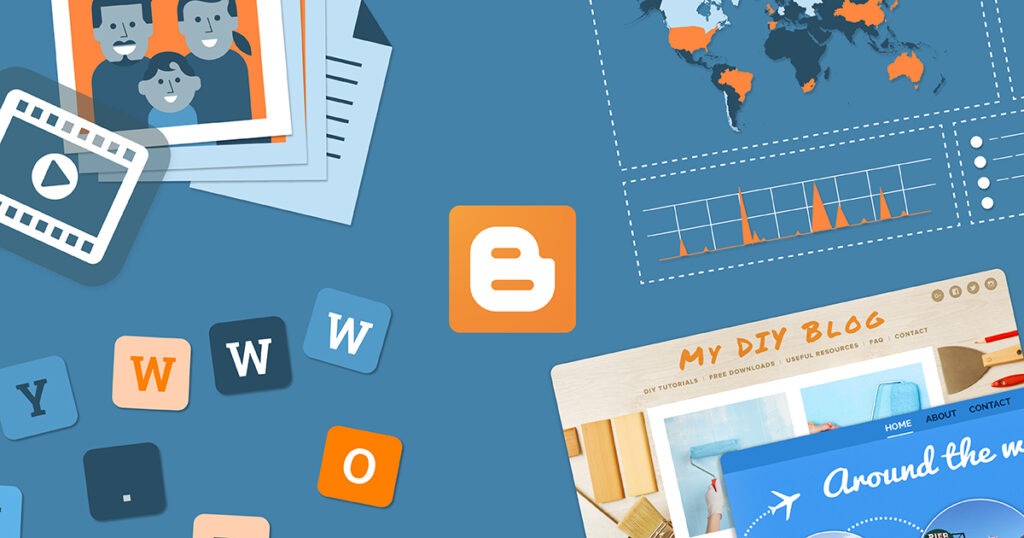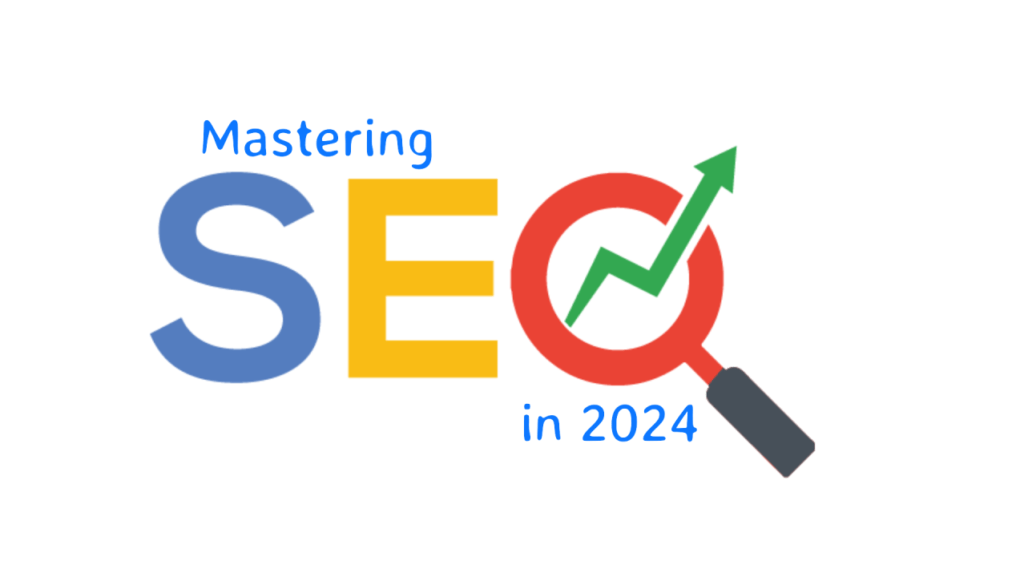
In the vast landscape of the internet, blogging stands as a beacon of individual expression and creativity. But for beginners, navigating the intricacies of creating content that not only resonates with an audience but also ranks well in search engine results can be daunting. In this comprehensive guide, we will delve into the essential strategies and techniques to help beginners master the art of blogging, from understanding the basics of SEO to crafting compelling content that captures attention and drives organic traffic.
Table of Contents
Understanding the Fundamentals of Blogging
What is Blogging?
Blogging is the act of creating and publishing content on a blog platform, typically in the form of articles, posts, or multimedia, with the intention of sharing information, opinions, or stories with an audience.
Why Start a Blog?
Starting a blog offers numerous benefits, including:
- Personal Expression: Blogging allows individuals to share their passions, interests, and expertise with a global audience.
- Building Authority: Consistently publishing high-quality content can establish you as an authority in your niche or industry.
- Monetization Opportunities: Blogs can be monetized through various channels, such as advertising, affiliate marketing, sponsored content, and digital product sales.
Essential Blogging Tools and Platforms
Blogging Platforms
Popular blogging platforms include WordPress, Blogger, Medium, and Wix. Each platform offers its own set of features, customization options, and hosting solutions, allowing bloggers to choose the platform that best fits their needs and preferences.
Content Management Systems (CMS)
Content management systems like WordPress provide bloggers with intuitive interfaces for creating, editing, and managing their content. With a wide range of plugins and themes available, WordPress offers flexibility and scalability for bloggers of all skill levels.
Keyword Research Tools
Keyword research tools such as Google Keyword Planner, SEMrush, and Ahrefs help bloggers identify relevant keywords and topics with high search volume and low competition. Conducting keyword research is essential for optimizing content for search engines and attracting organic traffic.
Mastering SEO for Blogging Success

What is SEO?
SEO, or search engine optimization, is the process of optimizing a website or blog to rank higher in search engine results pages (SERPs) and attract organic traffic. Effective SEO involves optimizing on-page elements, improving website speed and performance, building high-quality backlinks, and producing valuable content.
On-Page SEO Techniques
On-page SEO techniques include optimizing meta titles and descriptions, using relevant keywords in headings and body text, optimizing images with descriptive alt tags, and structuring content for readability and user experience.
Off-Page SEO Strategies
Off-page SEO strategies involve building backlinks from reputable websites, engaging in social media promotion and content distribution, and fostering relationships with influencers and industry experts. Off-page SEO helps increase website authority and improve search engine rankings.
Crafting Compelling Content for Your Blog
Understanding Your Audience
Understanding your target audience is essential for creating content that resonates with their interests, needs, and preferences. Conduct market research, analyze audience demographics and psychographics, and solicit feedback to gain insights into their motivations and behaviors.
Blog Post Ideas and Formats
Blog post ideas and formats vary depending on your niche, audience, and goals. Popular formats include how-to guides, listicles, case studies, interviews, opinion pieces, and product reviews. Experiment with different formats to keep your content fresh and engaging.
The Importance of Visual Content
Visual content, such as images, infographics, videos, and interactive media, plays a crucial role in capturing attention and enhancing the user experience. Incorporate visual elements into your blog posts to complement your written content and make it more visually appealing.
Monetization Strategies for Bloggers
Advertising
Advertising is one of the most common monetization strategies for bloggers, involving the placement of display ads, native ads, or sponsored content on their blogs. Popular advertising networks include Google AdSense, Media.net, and Amazon Associates.
Affiliate Marketing
Affiliate marketing allows bloggers to earn commissions by promoting products or services from third-party vendors. Bloggers can join affiliate programs, generate unique tracking links, and earn commissions for every sale or referral generated through their affiliate links.
Sponsored Content
Sponsored content involves collaborating with brands or advertisers to create content that promotes their products or services. Sponsored content can take various forms, including product reviews, sponsored posts, sponsored videos, and sponsored social media campaigns.
Frequently Asked Questions (FAQs) About Blogging for Beginners
Here are some common questions beginners have about blogging:
- How do I choose a niche for my blog? Choosing a niche for your blog involves identifying your interests, expertise, and target audience. Consider topics you’re passionate about and that have the potential to attract a dedicated audience.
- Do I need to have technical skills to start a blog? While some technical skills can be helpful, many blogging platforms offer user-friendly interfaces and intuitive tools that make it easy for beginners to start a blog without extensive technical knowledge.
- How often should I publish new content on my blog? The frequency of publishing new content on your blog depends on your goals, audience expectations, and available resources. Consistency is key, so aim to publish content regularly, whether it’s weekly, bi-weekly, or monthly.
- What are the best ways to promote my blog and attract readers? Promoting your blog involves utilizing various channels, such as social media, email marketing, guest blogging, search engine optimization (SEO), and networking with other bloggers and influencers in your niche.
- How long does it take to start seeing results from blogging? The timeline for seeing results from blogging can vary depending on factors such as your niche, content quality, promotion efforts, and SEO strategy. It may take several months or even years to build a significant audience and start generating substantial traffic and income.
- Should I focus on writing for search engines or for my audience? It’s essential to strike a balance between writing content that is optimized for search engines and content that resonates with your audience. Ultimately, creating valuable, engaging content that addresses the needs and interests of your audience should be your primary focus.
- What are some common mistakes to avoid as a beginner blogger? Common mistakes to avoid as a beginner blogger include neglecting SEO, inconsistency in publishing content, lack of promotion and marketing efforts, ignoring audience feedback, and neglecting to monetize your blog effectively.
- How can I measure the success of my blog? Success metrics for your blog may include website traffic, engagement metrics (such as comments, shares, and social media followers), conversion rates (such as email sign-ups or product sales), revenue generated, and overall impact and influence in your niche.
- What are some tips for staying motivated and overcoming writer’s block? To stay motivated and overcome writer’s block, try setting achievable goals, establishing a regular writing routine, seeking inspiration from other bloggers and content creators, taking breaks to recharge, and experimenting with different writing prompts and exercises.
- How can I monetize my blog effectively? Effective monetization strategies for blogs include advertising, affiliate marketing, sponsored content, selling digital products or courses, offering coaching or consulting services, and building a loyal audience that is willing to support your work through donations or memberships.
- Is it necessary to have my own domain name for blogging? Having your own domain name can give your blog a more professional appearance and improve brand recognition. However, many blogging platforms offer free subdomains, allowing you to start blogging without purchasing a domain name initially.
- What are some essential elements of a well-designed blog? Essential elements of a well-designed blog include a clean and visually appealing layout, easy navigation, clear branding, high-quality images, readable fonts, and mobile responsiveness.
- How can I come up with engaging blog post titles? Engaging blog post titles should be descriptive, attention-grabbing, and relevant to your content. Consider using numbers, questions, strong language, and keywords to attract readers’ attention and entice them to click.
- What role does social media play in blogging? Social media plays a significant role in promoting your blog, increasing visibility, and driving traffic. Share your blog posts on social media platforms, engage with your audience, and participate in relevant communities and conversations to expand your reach.
- Are there any legal considerations I should be aware of as a blogger? As a blogger, you should be aware of legal considerations such as copyright infringement, privacy laws, disclosure requirements for sponsored content, and terms of service for the blogging platform you’re using. Familiarize yourself with relevant laws and regulations to avoid potential legal issues.
- How can I build an email list for my blog? Building an email list involves offering valuable incentives, such as exclusive content, freebies, or discounts, in exchange for visitors’ email addresses. Use opt-in forms, pop-ups, and lead magnets to capture email addresses and nurture relationships with your subscribers.
- What are some effective strategies for guest blogging? Effective guest blogging strategies involve researching relevant websites and blogs in your niche, pitching unique and valuable content ideas to editors or site owners, adhering to their guidelines and editorial standards, and promoting your guest posts to maximize exposure.
- How can I repurpose my blog content to reach a wider audience? Repurposing blog content involves transforming existing blog posts into different formats, such as infographics, videos, podcasts, or slide presentations, and sharing them across various platforms and channels to reach new audiences and extend your content’s lifespan.
- What are some ways to engage with my blog audience and encourage interaction? Engage with your blog audience by responding to comments, encouraging discussion and feedback, conducting polls or surveys, hosting live Q&A sessions, featuring guest contributors, and creating interactive content such as quizzes or contests.
- How can I stay updated on blogging trends and best practices? Stay updated on blogging trends and best practices by following industry blogs and publications, attending webinars and conferences, joining online communities and forums, networking with other bloggers and content creators, and experimenting with new techniques and strategies.
Conclusion
Blogging offers a powerful platform for sharing ideas, building communities, and even generating income. By mastering the fundamentals of SEO, leveraging essential blogging tools and platforms, crafting compelling content, and exploring monetization strategies, beginners can embark on a rewarding blogging journey that drives traffic, engages audiences, and unlocks new opportunities for growth and success.





